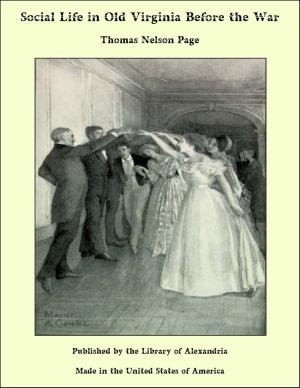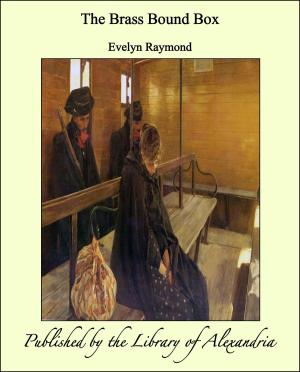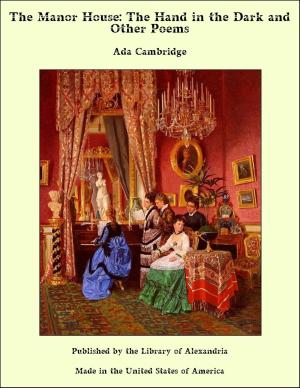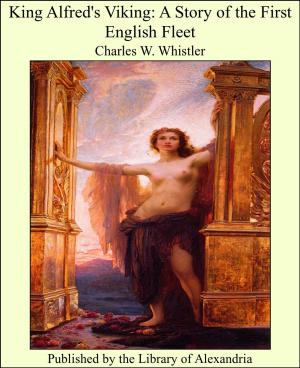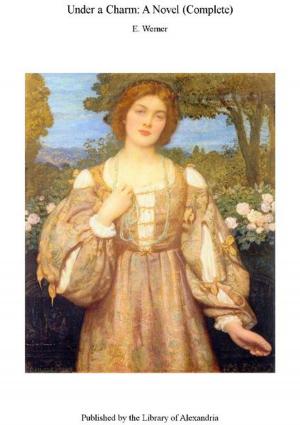The Hammer: A Story of the Maccabean Times
Nonfiction, Religion & Spirituality, New Age, History, Fiction & Literature| Author: | Alfred John Church | ISBN: | 9781465610843 |
| Publisher: | Library of Alexandria | Publication: | March 8, 2015 |
| Imprint: | Language: | English |
| Author: | Alfred John Church |
| ISBN: | 9781465610843 |
| Publisher: | Library of Alexandria |
| Publication: | March 8, 2015 |
| Imprint: | |
| Language: | English |
The time is the evening of a day in the early autumn of the year 174 B.C. There has been a great festival in Jerusalem. But it has been curiously unlike any festival that one would have expected to be held in that famous city. The people have not been crowding in from the country, and journeying from their far-off places of sojourn among the heathen, to keep one of the great feasts of the Law. Nothing could be further from the thoughts of the crowd that is streaming out of this new building which stands close under the walls of the Temple. What would they who built the Temple some two and a half centuries before have thought of this strange intruder on the sacred precincts? It is not difficult to imagine, for the new erection is nothing more or less than a Circus, built and furnished in the latest Greek fashion, and the spectacle which the crowd has been enjoying, or pretending to enjoy—for it is strange to all, and distasteful to some—is an imitation of the Olympian games. Things then, we see, have been curiously changed. Even the city has almost lost its identity. It is no longer the capital of the Jewish nation, but the chief town of an insignificant province in the Greek kingdom of Syria, one of the fragments into which the great dominion of Alexander had split some hundred and fifty years before. We shall understand something more about this marvellous change if we listen to a conversation that is going on in one of the houses that adjoin the Temple. “Well, Cleon, you will allow that our little show to-day has been fairly successful. We are but novices, you know; barbarians, I am afraid you will call us. But we hope to improve. You Greeks are wonderful teachers. You can give in a very short time a quite marvellous appearance of refinement to the merest savages. And we are not that; you would not call us savages, my dear friend.” “Savages! The gods forbid that such insolent folly should ever come from my tongue! You have a most elegant taste in art, my dear Jason. Our own Callias—he is our first connoisseur at Athens; you must have heard me mention him—would not disdain to have some of the little things which you have about you here in his own apartment.” And, as he spoke, Cleon looked round the room, which, indeed, was very handsomely furnished in the latest Greek taste. The walls were covered with tapestry, showing on a purple ground a design, worked in silver and gold, which represented the triumphant return of the Wine-god from his Eastern campaigns. At one end of the room stood a sumptuously-carved bookcase, filled with volumes adorned by the most skilful binders of Alexandria. The bookcase was flanked on either side by a pedestal statue, one displaying the head of Hermes, the other the head of Athené. On a sideboard were ranged twelve silver goblets, on which had been worked in high relief the labours of Hercules. But probably the most precious object in the room—at least in its master’s estimation—was a replica, about half the size of life, of the statue that we know as the “Dying Gladiator.” It was the work of a sculptor of Pergamum, a special favourite of the art-loving dynasty of the Attali.
The time is the evening of a day in the early autumn of the year 174 B.C. There has been a great festival in Jerusalem. But it has been curiously unlike any festival that one would have expected to be held in that famous city. The people have not been crowding in from the country, and journeying from their far-off places of sojourn among the heathen, to keep one of the great feasts of the Law. Nothing could be further from the thoughts of the crowd that is streaming out of this new building which stands close under the walls of the Temple. What would they who built the Temple some two and a half centuries before have thought of this strange intruder on the sacred precincts? It is not difficult to imagine, for the new erection is nothing more or less than a Circus, built and furnished in the latest Greek fashion, and the spectacle which the crowd has been enjoying, or pretending to enjoy—for it is strange to all, and distasteful to some—is an imitation of the Olympian games. Things then, we see, have been curiously changed. Even the city has almost lost its identity. It is no longer the capital of the Jewish nation, but the chief town of an insignificant province in the Greek kingdom of Syria, one of the fragments into which the great dominion of Alexander had split some hundred and fifty years before. We shall understand something more about this marvellous change if we listen to a conversation that is going on in one of the houses that adjoin the Temple. “Well, Cleon, you will allow that our little show to-day has been fairly successful. We are but novices, you know; barbarians, I am afraid you will call us. But we hope to improve. You Greeks are wonderful teachers. You can give in a very short time a quite marvellous appearance of refinement to the merest savages. And we are not that; you would not call us savages, my dear friend.” “Savages! The gods forbid that such insolent folly should ever come from my tongue! You have a most elegant taste in art, my dear Jason. Our own Callias—he is our first connoisseur at Athens; you must have heard me mention him—would not disdain to have some of the little things which you have about you here in his own apartment.” And, as he spoke, Cleon looked round the room, which, indeed, was very handsomely furnished in the latest Greek taste. The walls were covered with tapestry, showing on a purple ground a design, worked in silver and gold, which represented the triumphant return of the Wine-god from his Eastern campaigns. At one end of the room stood a sumptuously-carved bookcase, filled with volumes adorned by the most skilful binders of Alexandria. The bookcase was flanked on either side by a pedestal statue, one displaying the head of Hermes, the other the head of Athené. On a sideboard were ranged twelve silver goblets, on which had been worked in high relief the labours of Hercules. But probably the most precious object in the room—at least in its master’s estimation—was a replica, about half the size of life, of the statue that we know as the “Dying Gladiator.” It was the work of a sculptor of Pergamum, a special favourite of the art-loving dynasty of the Attali.





